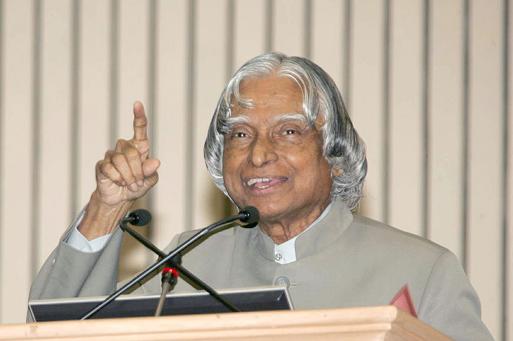Recently, I was privileged to hear Dr. Abdul Kalam speak at The Indus Entrepreneurs (TIE) event in Seattle on the topic “Entrepreneurs in a nation’s development: Vision 2020.” In the context of Vision 2020, his vision of a developed India, Dr. Kalam spoke on leadership and his ideas on how to counteract corruption in India. His thoughts on leadership are useful for entrepreneurs, who must also be good leaders—both by choice and necessity. His ideas on fixing the problem of corruption, however, I would respectfully dispute.
A leader, according to Dr. Kalam, must first have a vision. Dr. Kalam himself is an entrepreneur and a leader by this measure with his Vision 2020 document, a roadmap to a developed India by the year 2020. A central aspect of Vision 2020 is the concept of PURA (Providing Urban Amenities in Rural Areas). The idea is to harness the entrepreneurship potential in rural areas by providing knowledge, electronic and infrastructural connectivity through centralized hubs. With some of these, PURA is starting to become operational, it is an important development for entrepreneurs to take note of. It provides new market opportunities for expansion into rural areas.
The second quality of a leader is the passion to translate ideas into action. Dr. Kalam himself travels around the globe and speaks tirelessly of Vision 2020, helping to galvanize people into action. I found it interesting how he appealed to higher ideals and didn’t shy away from getting the audience of hard-boiled business professional to repeat pledges and statements after him. It may have sounded odd, but his passionate enthusiasm was hard to refuse. Here, he was demonstrating a third quality—of forging a new path and dispensing with the clichéd speech- making we are accustomed to. Sometimes, faced with a new audience, we may feel sheepish about trying an out-of-the-box approach of presenting something. If Dr. Kalam can make a roomful of business leaders repeat pledges after him like children learning by rote in a rickety village school, we can certainly muster the courage to go out on a limb in our presentations to advance our ideas.
Of all the stories Dr. Kalam related at the event, one struck me as the most inspiring. Dr. Kalam highlighted an important quality of leadership by giving the example of his ex-boss, Dr. Satish Dhawan, chairman of the Indian Space Research Organization (ISRO). Back then, Dr. Kalam was the project director for SLV-3, India’s satellite launch program. In August 1979, when the first SLV-3 launch was a failure, Dr. Dhawan called a press conference to accept responsibility for it. The following year, the satellite launch was successful; this time, he asked Dr. Kalam to address the press conference, rather than seeking the limelight himself. A good leader, Dr. Kalam noted, takes responsibility for failure and passes the credit for success to his team. As managers, we often do exactly the opposite. A leader must inspire his team to loyalty and commitment.
Dr. Kalam concluded his speech by touching upon the issues of transparency and integrity. The problem of corruption in India, he said, can be solved by teaching moral values at home. I completely agree that one should run one’s business with integ- rity—it makes you feel good about yourself and helps you sleep better at night. But it is simplistic to suggest that the problem of corruption in India can be solved with moral science lessons. In countries like the U.S., the average citizen faces far fewer problems of corruption while trying to get services from the local government. This isn’t because people in the U.S. are morally superior to people in India; it’s because our government machinery is fundamentally a continuation of the colonial setup. It was not designed to serve people, but to control them. The district official was called a collector, a reminder of his extortionist role.
Reducing the power of the government through increased privatization and redefining its role through structural reform is the way forward. Entrepreneurs would be the natural catalysts— and leaders—in this much-needed transformation.
Originally published in Entrepreneur Magazine
© Sankrant Sanu 2009-2010. All rights reserved.
